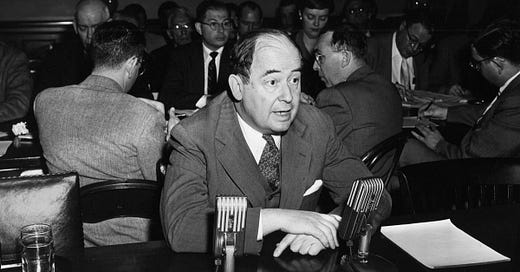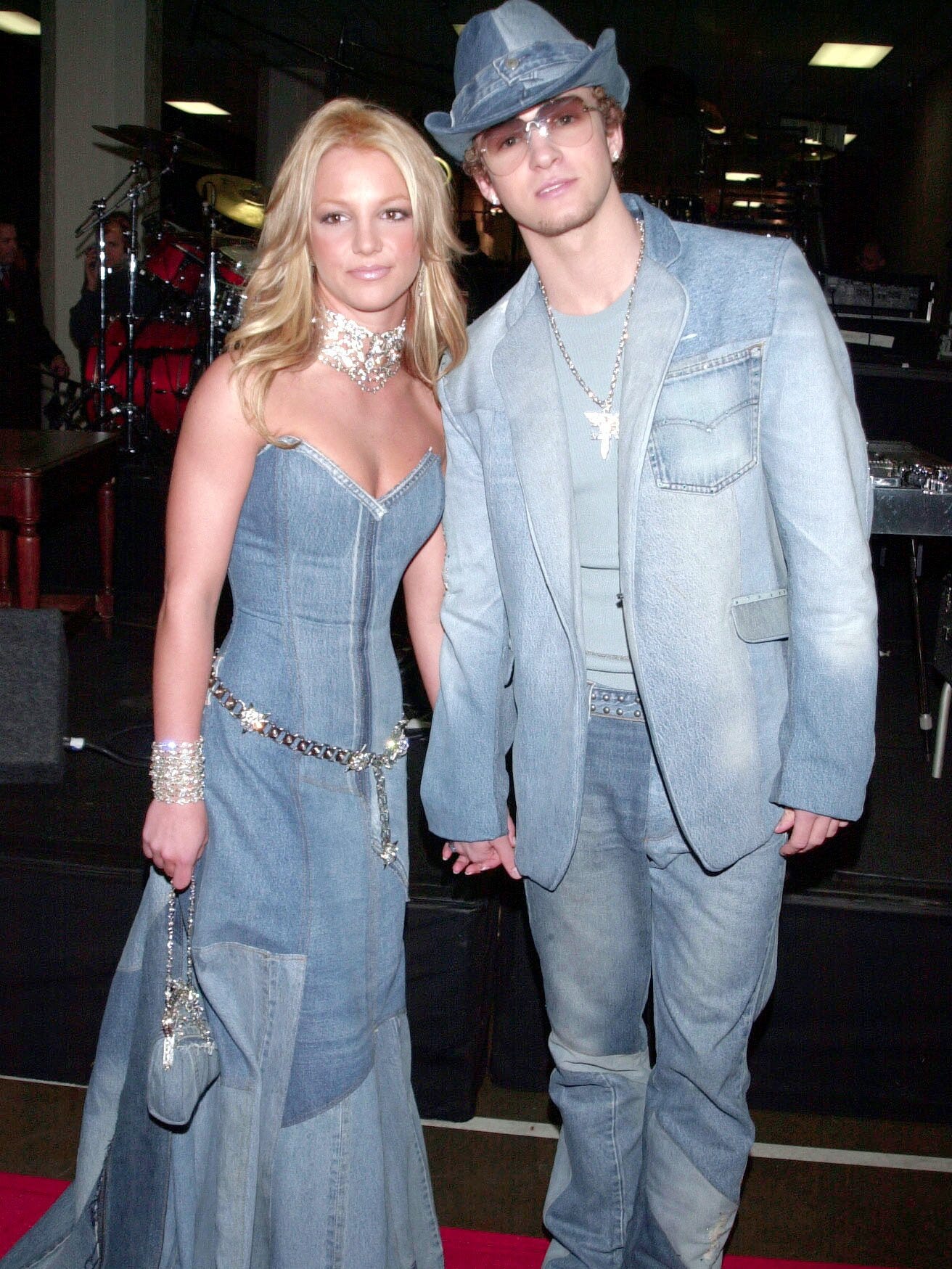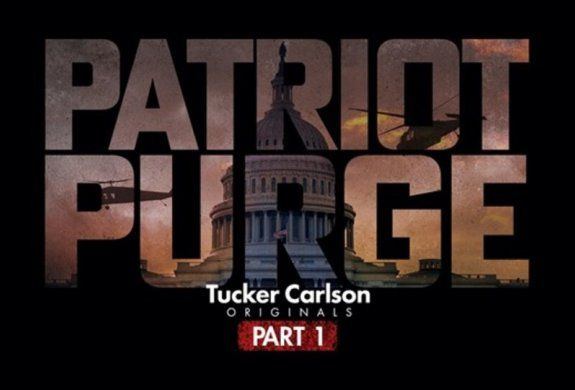Happy Friday!
Working for an American magazine can sometimes be an odd experience—our countries are so similar, and yet so different. I really felt that alienation this week as the verdicts came through in the trial of Kyle Rittenhouse (who was found not guilty of killing two men and wounding a third during riots in Kenosha, Wisconsin, last year) and the murder convictions of the three men involved in the death of Ahmaud Arbery in Brunswick, Georgia.
It’s useful to look at the two cases together, because they are united by two common themes: racism and America’s gun laws.
Kyle Rittenhouse is white (as were the men he shot). The most striking aspect of the case was that this teenager was out patrolling the streets with a military-style assault rifle during the Black Lives Matter protests. (His rationale was that he was keeping the peace and providing medical help.) I have a nephew not much younger than Rittenhouse, and he is a real credit to his parents and society at large, but he should not be in charge of patrolling the streets of a city armed with an assault rifle. To a European, this seems fairly obvious.
Ahmaud Arbery was black. The rationale given by Travis and Gregory McMichael and their neighbour, William Bryan (all white) for following him in vehicles and attempting a citizen’s arrest was that he resembled a man who had been a frequent trespasser in a local construction site. The younger McMichael had a shotgun, the older one a handgun. This NYT reconstruction shows the McMichaels pursuing Arbery down the street in their truck. Travis McMichael gets out, shoots Arbery with his shotgun, and shoots him twice more as Arbery attempts to wrestle the gun away from him.
The jury accepted Arbery’s perspective—why submit to what looks like kidnap from three random armed strangers?—to reach their verdict that it was murder, rather than the defence’s case that it was a citizen’s arrest, or their other argument that Travis McMichael acted in self-defence because Arbery was trying to grab his gun. (Separate hate crime charges will be considered in the Spring.)
Again, it is impossible to imagine this series of events playing out in Britain, where not even all police officers are armed, let alone random guys who used to work for the DA. If I saw a trespasser at a house across the street, there is no world in which I go confront them myself. It’s not my job. And say what you like about Lewisham, I never see men cruising past on the bed of a truck, handgun aloft.
Many of the contrarian/heterodox thinkers I follow have commented on the poor reporting of Rittenhouse case—pointing out that the left has incorrectly claimed he was a white supremacist (he has no formal affiliation to any group, and said in an interview this week he supports BLM); that he crossed state lines with the gun (he didn’t, it was stored at a friend’s house); or that he was carrying it illegally (also wrong, the truly mad thing is that Wisconsin law allowed a 17-year-old to waltz around with a long-barrelled rifle). Perhaps least forgivably of all, the Independent muffed the racial angle, claiming on its digital front page that Rittenhouse shot three black men.
All that speaks to a progressive movement which saw a pigeonhole, and in the words of Tim Minchin, immediately filled it with pigeon. They overstated the case and implied Rittenhouse was racist, whereas what seems racist to me is the architecture of the American police and courts—a set of laws heavily influenced by segregation-era ideas about whites as the defenders of property and the peace, and a justice system which treats white defendants more charitably than black ones.
For that reason, I was a little unsatisfied with these corrective takes, because it felt like arguing on easy mode. Let’s all talk about the media because the other aspects of this debate are too depressing to confront! What’s truly horrifying about these cases is the way that racism and “gun rights” interact. What the Arbery killers did—essentially forming a posse—was potentially legal under a Georgia “citizen’s arrest” law that has since been charged. Many people have also noted that if you want to wander round an American city open-carrying a rifle during a riot, as Kyle Rittenhouse did, you should always take the precaution of being white first.
Both cases returned, in my view, the correct verdicts—Rittenhouse had a strong self-defence claim under Wisconsin’s laws, which isn’t the same as saying what he did was smart, or that he is a hero. The Arbery verdict is especially welcome, since all but one of the jury were white, a deliberate choice by the defence. But both cases reveal something more deeply rotten in the American justice system. Who wrote the laws under which these men were operating, or felt they were operating? Who do those laws protect? And who enforces those laws?
In the Arbery case, it was only thanks to a dogged local reporter—and the leaking of William Bryan’s video footage of the crime—that the early official story was finally contradicted and the killers were put on trial. At the scene, where Arbery had just bled out, police turned up, took statements, and let the McMichaels go. In fact, Gregory McMichael, who had worked in the local district attorney’s office, was so confident that he had every right to launch an armed pursuit of a jogger that he telephoned 911 as he did so.
The Second Amendment to the US constitution pledges that “a well regulated Militia, being necessary to the security of a free State, the right of the people to keep and bear Arms, shall not be infringed”. The last week has made it clear that, in law and practice, there’s an implicit white before that militia. Some white Americans see themselves as enforcers of law and order, usurping the role of the police, and the consequences for those around them can be fatal.
This dynamic is another reason why “defund the police”, rather than “demilitarise the police”, was a terrible progressive slogan in the wake of George Floyd’s murder. Without confidence in the police, what you get is teenagers like Kyle Rittenhouse convinced that they should fill in. What you get is the McMichaels believing they have a right—no, a duty—to chase a jogger down the street in a pick-up truck.
The saddest thing about the coverage of these trials, for me, is how little attention has been paid to the role of guns (with some notable exceptions). If you believe that racists will always exist, don’t arm them, that’s my tip. To a European, it just seems bleedingly obvious that if you rerun the Kenosha riots and the Arbery incident without mass gun ownership, you probably end up with three more people alive.
And yet I think many US progressives don’t want to approach that debate, because it feels so futile and intractable. A previous ban on assault weapon sales expired in 2004 and Republicans have blocked its renewal. It must be incredibly depressing to contemplate the troubles of the NRA, and yet see no end to the dominance of the gun lobby in American life.
Like Sybil Trelawney, Dan Hodges is occasionally right:

Until next week,
Helen
PS. The other thing that these cases offer is a chance to test your ability to see what is really important. Many high-profile court cases are not slam-dunks (or no one would argue over them, merely sadly shake their head) and so deciding what information to exclude from your mental portrait of guilt and innocence is vital. Arbery did walk inside the empty house—odd, even suspicious behaviour, but he didn’t take anything, and he wasn’t found with stolen goods on his body. Thankfully, the judge ruled that his criminal and medical records were inadmissable in the case, because disclosing them would be like putting Arbery on trial rather than his killers.
Kyle Rittenhouse did launch a crowdfund for his defence, and allowed a camera crew from Tucker Carlson’s show to embed with his legal team (to the marked irritation of his lawyer). He did meet a group of Proud Boys in January, after the killings, and was filmed making the Okay sign with them (he says he has no idea it was a white supremacist gesture and he was set up). There are no perfect victims or perfect defendants.
PPS. Of all the popular media in the last few years to deal with race in America, my recommendation would be Lovecraft Country, particularly the first episode, “Sundown” (named after towns where it wasn’t safe for black people to be outside after sundown). It did what art should do, which is make you feel what it is like to be under threat, with no authority to protect you.
The genius of John von Neumann (Unherd)
[Von Neumann] also grew up in a fertile environment. Around the turn of the 20th century, the Budapest Jewish community of which he was part produced an astonishing number of great thinkers. Near-contemporaries included Dennis Gabor, “who won the Nobel Prize in physics in 1971 for inventing the hologram”; Theodore von Kármán, after whom the “Kármán line” is named, denoting the boundary between the Earth’s atmosphere and space; and Eugene Wigner, Edward Teller, and Leo Szilard, three of the greatest minds behind the Manhattan Project. The atomic bomb has been described as a “Hungarian high school science fair project”.
Tom Chivers on a unique intellect, and—even more interestingly to me—on how Nazi anti-semitism badly hurt Germany during the war, because so many of its great scientists had fled abroad. (I’ve been reading lately about Lise Meitner, another huge brain sacrificed on the dumbass altar of racial purity).
The Fall of Justin Timberlake (Slate)
Between Britney and Janet, Justin once skated through controversies that had grievous PR effects on the women around him. Fortified by his undeniable musical talent—and make no mistake, he is one of the greatest performers of recent history—Timberlake’s boy-next-door identity endured for decades, even in the face of evidence that contradicted it. The new reckoning around him feels like a cultural exorcism, a chance to use the boy band vessel to purge ourselves of the evils he now represents to many. But behind the scenes, he was at once a canny self-marketer and a blank, withholding presence at the hub of conflict, surrounded by publicists and media and managers who were crafting his image, too. Timberlake has become the perfect emblem of a bygone era that rewarded guys exactly like him—until it didn’t.
I feel sympathetic towards Justin Timberlake—he was playing the game according to its contemporary rules—and I don’t think we should ascribe perfect agency to him and not to Britney, just because he had a dick. But nonetheless, this piece is a good reminder of the toxic swamp of 00s pop culture.
The Fox Fix (National Review)
Understandably, people care a great deal more about Jonah Goldberg’s exit from Fox News. You can tell that Tucker Carlson and others care about it by how much, how loudly, and how bitterly they are talking about how much they don’t care. That’s familiar stuff, too: Every sub-Fox News nobody over at AR15RedStateJesus.com has written 500 blog posts and tweets about how “irrelevant” National Review is, and they’ll write 500 more this year. As the philosopher said, “Ob-la-di, ob-la-da.”
“This is war,” they tell us. It isn’t, of course, not by a damned sight, and thank God for it. But if you want to think of our recent national convulsions as war, then you should think of the cable-news gang as war profiteers. They have convinced millions of Americans that they are part of a great crusade, without quite disclosing that they are part of a great crusade to make sure that Sean Hannity never has to fly commercial and that Rachel Maddow can afford sustainably grown cedar planks for her weekend retreat in Massachusetts. And don’t think for a second that Hannity and Maddow aren’t in the same business and on the same team — if you believe otherwise, you are a sucker and a mark.
I don’t blame people for wanting to make money — I do my best to make some, too — but there are times when I think I might respect these entrepreneurs a little more if they just sold heroin.
Maybe the first (and last) time The Bluestocking will feature a link to the National Review, but it feels appropriate since a) Kevin Williamson’s piece is about reading publications you disagree with; b) I’ve been reading about National Review’s founder William F Buckley ahead of James Graham’s new play, Best of Enemies.
The proximate cause of this refreshing blast of invective is that two non-Trump conservatives, Jonah Goldberg and Stephen Hayes, quit as pundits for Fox News over Tucker Carlson’s documentary on the Capitol Invasion, Patriot Purge. (Spoiler: Big Tuck thinks that storming the US seat of government wasn’t a big deal.”) Here is the Ben Smith story on their departure. Going into next year’s US midterm elections, it’s an open question how much the Republicans will be explicitly the party of “the 2020 election was rigged against Trump”—and how much candidates will feel they have to do obeisance to Orange Colonel Kurtz.
Quick Links
The Bluestocking is now more than four years old, which is a lot of words to have hurled at you every Friday morning. I hope you’ve enjoyed them. A couple of people have recently asked how they can say thanks, so if you feel motivated, here’s my Amazon wishlist. (You can also follow this link purely to observe my nerdy taste in books and even nerdier taste in National Gallery cross-stitch kits.)
“While Elinor claimed to be in pain or resting for hours a day, the diaries reveal she often slipped out and went shopping. She also records being consciously deceptive. On one occasion Elinor writes, ‘Decided to faint,’ and on another, ‘Decided to get better.’” Interview with Helen Naylor on her new book, about her mother’s Munchausens (Telegraph).
“Does depression exist? … is there a thing we can point to in someone’s brain — or some identifiable part of their psychology — that’s called “depression”?” Stuart Ritchie in Unherd on the limited evidence for any particular depression treatment above others.
My (very talented but despicably young) colleague Christian Paz has written a really informative piece on “Latinx”, the activist choice for a gender-neutral version of Latino/Latina. One thing that’s maybe under-considered in these debates (see also: womxn) is that so much activism being online these days leads to the coining and promotion of words that … people just don’t know how to pronounce. (I believe it’s “la-teen-ex” rather than “la-tinks” but I don’t think I have ever heard it spoken aloud, and I can’t help you on “womxn”, sorry.) If these conversations were happening IRL, either that problem would become apparent earlier, or the pronunciation would spread at the same speed as the coinage.
See you next time!






